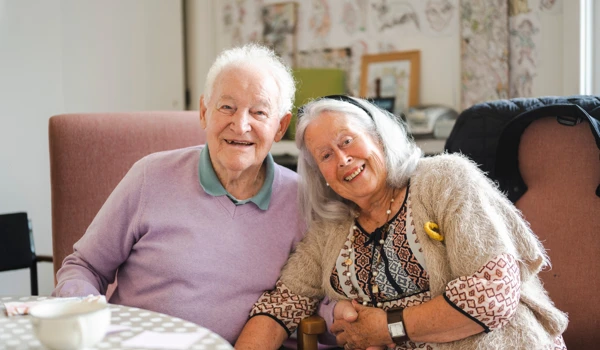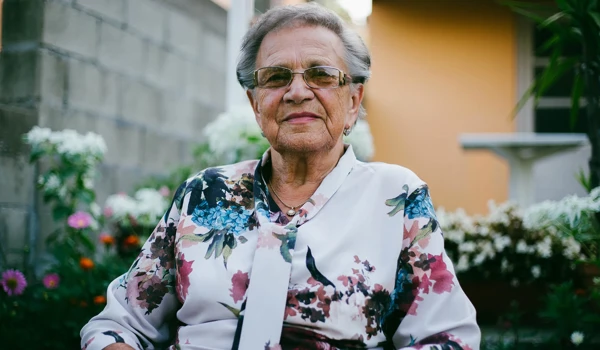How will I finance the care I need?
Arranging care at home or moving into residential care or sheltered housing can be a complex process, but we’re here to help. Below we’ll take you through paying for care, step by step.
Will the council pay for my care?
Your local authority or council is responsible for assessing your needs, and holds the budgets for paying for help, assistance and care. When you think your needs are getting too much for your current situation, you should first ask the local authority for a care needs assessment, after which you will have a means assessment to see what, if anything, you would have to pay for any services or care. If you disagree with the outcome of an assessment, you can contact some of the organisations listed below who can help you.
Even if you’re intending on funding your own care, you should still discuss your situation with the local authority as they can help you to identify areas where you might need help and arrange this for you.
What does the means test involve?
The means test, or financial assessment, works out if the council will pay towards your care. In short, it looks at how much money you have.
Generally, the council helps to pay for care costs if you have savings below £23,250.
During the means test a financial assessment officer from the council will visit you at home and ask you things about your:
- Earnings
- Pensions
- Benefits
- Savings
- Properties
How should I prepare for the means test?
The best thing you can do is gather all the information you have about:
- Your savings
- Property you own
- Any stocks and shares you have
- Any benefits you receive
- Your pension
Certain types of income, such as money from some disability-related expenses, may not be included in the assessment but it’s best to have these available to show the assessor so that you are completely transparent about your financial situation.
Will I have to sell my home to pay for care or social housing?
If you need a paid carer and therefore you’re staying in your own home, the value of your home is not included in calculations to determine what assets you have.
But if you are paying for a care home or other types of housing or care, the value of your house will be included unless your partner or spouse is still living in it.
What shouldn’t I do as part of a means test?
You may think about giving away some of your money or assets before the means test to avoid paying likely care costs however, the means test can ask you about things you used to own.
If the council think you have given away money to avoid paying care costs they may still factor that money into your assessment or stop you getting any financial help at all.
What if I run out of money after I move into care or social housing?
To qualify for funding from your local authority for care costs, you must meet certain financial criteria. In addition to having eligible care needs, you must be unable to afford to pay for your care yourself.
If your savings and investments are depleting, it's important to check if your capital falls below the relevant thresholds.
- Below the upper limit: If your capital is below the upper limit for your country, you may be eligible for some financial support towards your care costs.
- Below the lower limit: If your capital is below the lower limit, you may be able to have your care home fees fully covered by the local authority.
| Country | Upper Limit | Lower Limit |
|---|---|---|
| England | £23,250 | £14,250 |
| Scotland | £35,000 | £21,500 |
| Wales | £50,000 (single threshold) | N/A |
| Northern Ireland | £23,250 | £14,250 |
If you're currently self-funding your care or housing costs and your savings are nearing the £23,250 threshold, you should ask for an assessment from your local council. They can assess your eligibility for financial assistance and help you plan for the future.
Remember: Local authority policies and eligibility criteria can vary. To get the most accurate information, it's best to contact your local council.
I still need more information, where can I go?
Here are some useful organisations which may be able to provide you with more information:
- GOV.UK has a range of information on planning for retirement, including information and advice on pensions, tax and benefits.
- FirstStop Advice is an independent free service offering advice and information for older people, their families and carers about housing and care options in later life. You can call them on 0800 3777070.
- The Money Advice Service is an independent service set up by the government to help people make the most of their money. Their advice is free and unbiased, and can be contacted online, by phone or face to face. Call 0300 500 5000 for an appointment.
- Age UK is a large national charity offering advice, information and guidance on a range of later life matters. Call their advice line on 0800 169 6565.
Next steps

What type of care do I need?
If you think you, or someone you know, needs care, the first step is to get a care needs assessment from your local council.

When is the right time to move into a care home?
Moving to a care home can be an emotional time but making plans early and getting the information and advice you need will help make any changes much easier and less stressful.

Housing options for older people
If you’re thinking about where you might like to move as you get older we can help. We've listed some housing options for older people for you to explore and find out the difference between each.
